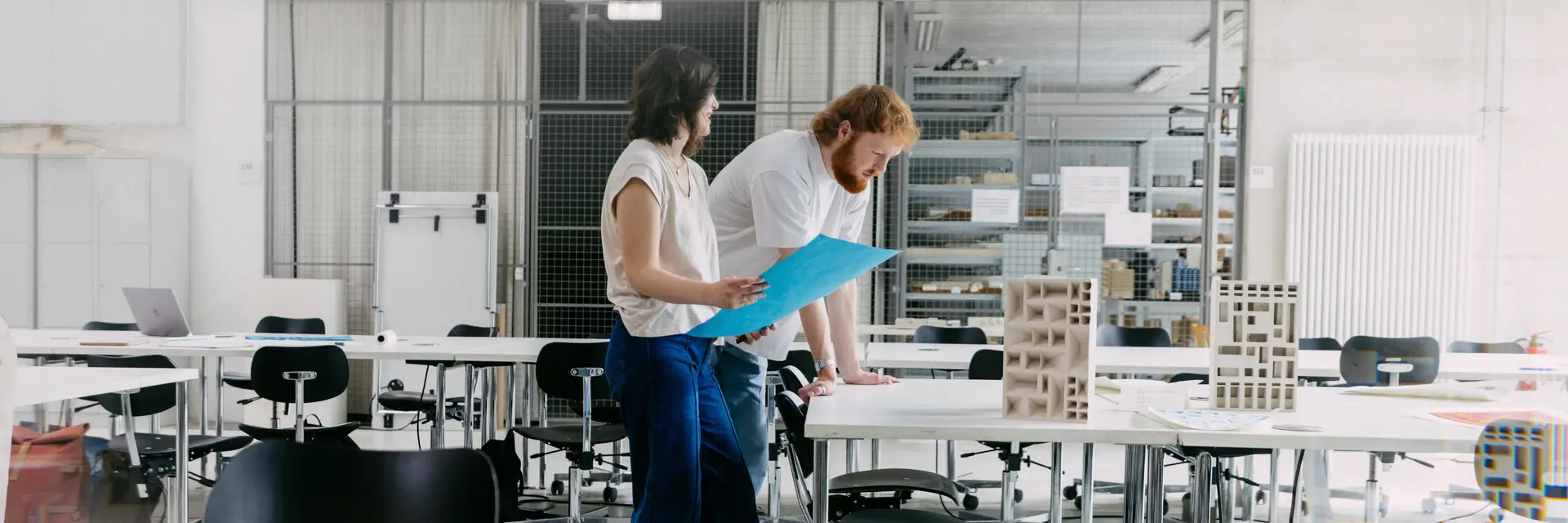
Faculty of
Architecture and Civil Engineering
in Wiesbaden
Research at the Faculty of Architecture and Civil Engineering
The competencies of the Faculty of Architecture and Civil Engineering are bundled in research focuses.
There are currently five of these focuses, which are involved in the areas of basics and application-oriented research, primarily with a specialization in sustainability in their respective research areas:
- Architecture and building culture
- Real estate and construction industry
- Mobility and transportation
- Renewable building materials and clay construction
- Resource-conserving Construction and development of new materials
- Water and soil
The research activities of the Faculty of Architecture and Civil Engineering are generally characterized by the inclusion and use of existing teaching and research laboratories. There are currently 9 laboratories at the faculty.
Doctoral centers
The Faculty of Architecture and Civil Engineering is actively involved in the supervision and assessment of doctorates. In addition to cooperative doctoral procedures in collaboration with university partners, the teaching staff are primarily involved in the Hessian Doctoral Centers.
The faculty is currently involved in the following doctoral centers and projects:
Promotion Center for Mobility and Logistics
Doctoral Center for system-integrated engineering researches